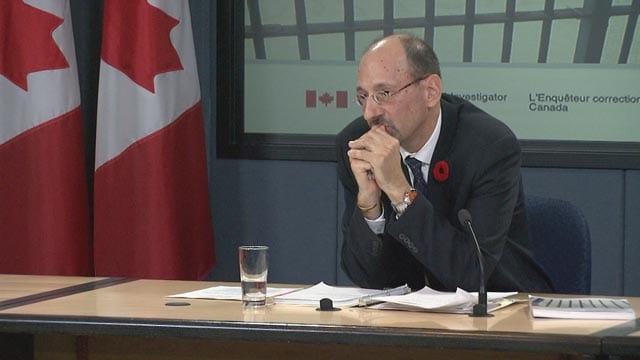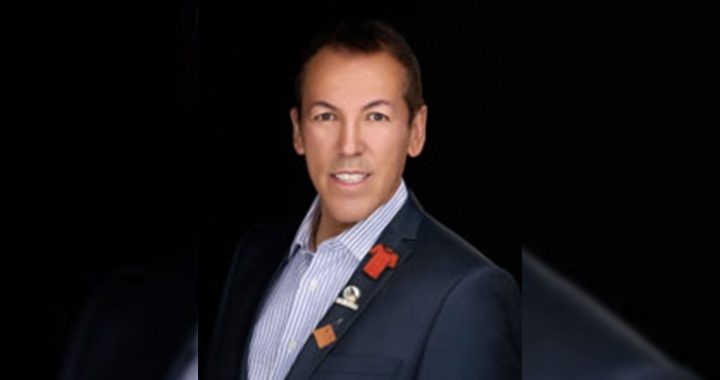Canada has made little progress implementing the Truth and Reconciliation Commission’s 10 calls to action related to the imprisonment of First Nation, Metis and Inuit peoples in the country’s penitentiaries.
That’s according to the latest report from the Office of the Correctional Investigator Ivan Zinger.
Read the report here: Office of the Correctional Investigator Annual Report 2017-2018
The calls to action include eliminating the over-representation of Indigenous peoples behind bars, providing money to communities for alternatives to imprisonment, and to address Fetal Alcohol Syndrome Disorder.
“To honour the Truth and Reconciliation Commission’s ‘calls to action,’ I recommend that CSC (Correctional Service of Canada) spending, budget and resource allocation should better reflect the proportion of Indigenous people serving a federal sentence,” wrote Zinger in the report.
“Over the next decade, re-allocation of resources and delegation of control to Indigenous communities should be the stated goals of CSC’s contribution to reaching the TRC’s ‘calls to action.’”
The picture for First Nation, Metis and Inuit people locked behind bars in Canada has not changed since the office started writing these reports – in some cases the situation is worse.
(Canada’s Correctional Investigator Ivan Zinger at a news conference in Ottawa Tuesday. Photo: APTN)
Indigenous offenders made up 30 per cent of all admissions to federal custody in 2017-18 compared to 22.5 per cent ten years earlier said the report.
And Indigenous peoples are still over-represented in Canada’s prisons.
According to the report between 2009 to 2018 the Indigenous population increased by 42.8 per cent. The total population now stands at 28 per cent of the prison population despite comprising just 4.3 per cent of the overall population.
Zinger says for Indigenous women it’s worse where 270 First Nation, Metis or Inuit women are incarcerated making up 40 per cent of the prison population.
“For federal corrections, the heavy lifting has hardly begun,” Zinger reports. “A bolder direction is clearly required. To address the enormity of the challenge of Indigenous over-incarceration, CSC and the Government of Canada must more fully devolve responsibility, but most of all resources and control, back to Indigenous people.
“In practice, this could entail a reallocation of spending to match the proportion of Indigenous people with a federal sentence.”
Watch APTN Investigates: Indigenous People in Canada behind bars
More concerning are the changes that the CSC has undertaken that seem to be working for non-Indigenous inmates.
According to Zinger, while use of segregation has declined overall, it has not for Indigenous peoples. Segregation used for non-Indigenous inmates dropped by 23 per cent compared to only 10.3 per cent for First Nations, Metis and Inuit.
And 39 per cent of Indigenous offenders returned to federal custody on a revocation, compared to 31 per cent for the total population.
Zinger also takes aim at the
According to Correction Canada’s website, the program provides a healing program within the prison for prisoners who demonstrate a commitment to “follow traditional healing as a way of life 24-hours a day.” The Elder led program “reinforces a traditional Aboriginal way of life” with “Aboriginal traditional values and beliefs.”
The Pathways program could lead to early release – but Zinger says non-Indigenous inmates are not asked to follow the same protocols.
“CSC does not require a non-Indigenous person entering prison to follow their spirituality, healing or cultural traditions in order to engage in programming. To expect a person of Indigenous ancestry to follow an Aboriginal healing path or cultural traditions when imprisoned is one thing, but to make that a determinant for release is quite another. Indigenous people walk in the “two worlds” all their lives,” wrote Zinger.
“The approach to Pathways and the AICs seems somewhat parochial, if not patronizing.”
Zinger said there are some bright spots.
More Indigenous inmates are being supervised in the community over the past ten years.
Zinger is also making the yearly call for CSC to create the position of deputy Indigenous commissioner.
That recommendation has been made on a number of occasions but has never been acted upon by government.
“Loosening the levers and instruments of correctional (some might say) colonial control is consistent with the path toward reconciliation between Canada and its First Nations,” he said.
“Of course, devolution of correctional power will only happen if there is courageous and visionary leadership at the top of the Correctional Service – a vision and commitment that must be duly supported and directed by the Government of Canada.”












Progress on the TRC 94 recommendations…. let’s have a full evaluation report on the overall status of Indian Residential Schools Settlement Agreement (IRSSA) from where the TRC and the 94 Calls to Action derive. Was the IRSSA good for the Survivors? What are the successes and shortcomings of the IRSSA? What healing work still needs to be addressed for Survivors, their families and communities? The evaluation of IRSSA must happen now before it expires.
This spring, the Law Society of Ontario (quietly) supported the call to evaluate the Indian Residential Schools Settlement Agreement. The Law Society’s support has since quietly died into the wind. Meanwhile Survivors are forgotten, especially those who have alleged mishandling of claims by the lawyers.
Garnet Angeconeb
IRS Survivor
Sioux Lookout, ON
Progress on the TRC 94 recommendations…. let’s have a full evaluation report on the overall status of Indian Residential Schools Settlement Agreement (IRSSA) from where the TRC and the 94 Calls to Action derive. Was the IRSSA good for the Survivors? What are the successes and shortcomings of the IRSSA? What healing work still needs to be addressed for Survivors, their families and communities? The evaluation of IRSSA must happen now before it expires.
This spring, the Law Society of Ontario (quietly) supported the call to evaluate the Indian Residential Schools Settlement Agreement. The Law Society’s support has since quietly died into the wind. Meanwhile Survivors are forgotten, especially those who have alleged mishandling of claims by the lawyers.
Garnet Angeconeb
IRS Survivor
Sioux Lookout, ON